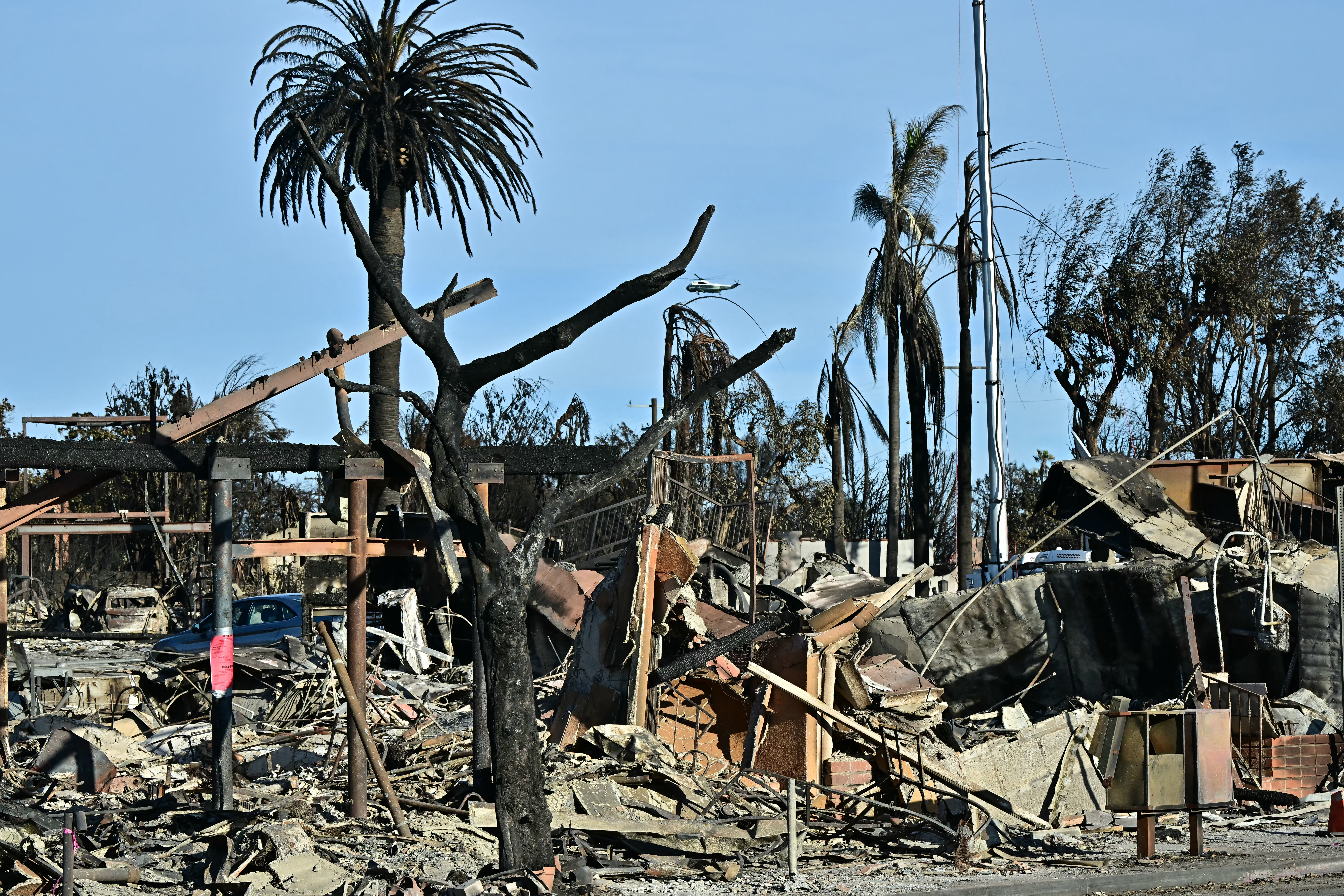
Whites Denied Help After Wildfires
Millions of dollars collected to aid victims of the 2025 California wildfires ultimately ended up in the coffers of NGOs supporting progressive causes. Some of the groups that received funding explicitly exclude white people from their services, while others run programs exclusively benefiting illegal immigrants.
FireAid, a celebrity-backed fundraising organisation that raised around $100 million to help those affected by the California wildfires, distributed money to more than 160 California nonprofits, according to a review by the Washington Free Beacon.
The wildfires ravaged California in January, destroying countless homes, causing immeasurable damage, and forcing tens of thousands to flee the Los Angeles area. The blaze also directly claimed at least 30 lives and is linked as a contributing factor in hundreds more.
FireAid announced in February that the money would be distributed „equitably”. It seems they kept that promise — though their method leaves much to be desired.
Whites Ineligible for Aid
The Greenline Housing Foundation, for instance, received funding from a $4.8 million pool earmarked for health care and housing.
On its website, however, the foundation specified that white people are not eligible.
“To be eligible for the Greenline Housing Foundation’s support, one must be Black or Hispanic,” the group stated.
Greenline told the Free Beacon that “anyone can apply for and benefit” from its wildfire programs. But the wildfire relief section of its website makes clear that the foundation will “focus its efforts on supporting Black and Hispanic communities.”
The same is true of the Black Freedom Fund, a nonprofit born during the Black Lives Matter era that dedicates itself to fighting “systemic racism” and advancing “Black power-building.” The group — which received money from a $7.6 million “disaster relief” fund — stated in a 2023 grant proposal that it supports only groups “led and controlled by Black people” and serving “primarily Black communities.”
My Tribe Rise, another recipient from the same fund, has a similar mission. Founded in 2019, the group’s stated aim is to “remove the stigma of gangs and raise awareness of the positive changes possible when people unite to end violence and meet the needs of Black and Brown communities.”
Wildfire Relief Money Directed to Illegal Immigrants
Other groups that received FireAid funding provide assistance to illegal immigrants in California.
The Alliance for a Better Community, which describes its work as advancing “social, economic and racial equity and justice for the Latino community,” received money from the “disaster relief” fund as well as an additional $5.9 million for “ongoing support to wildfire victims and communities.”
The group distributed FireAid’s money through its “Fuerza Fund,” described on FireAid’s website as an initiative of the Alliance providing “immediate, direct cash aid to essential workers and households impacted by wildfires in Los Angeles.”
But on its own site, the group stated that it would “double down on its commitment to immigrant and undocumented families — to ensure they not only survive but regain security, power and peace of mind.”
According to the Fuerza Fund’s page, beyond wildfire relief, it also focuses on “addressing the fear caused by raids and deportations” through “direct financial support, trauma-related healing programs, and legal empowerment resources where they are needed most.”
Home Grown, a nonprofit supporting home-based childcare providers, received money from a $3.5 million fund for “children and families.” Its website says it is committed to directing resources to “undocumented immigrants” as well. The Instituto de Educación Popular del Sur de California, another FireAid recipient, also runs programs for illegal immigrants.
This Is Nothing New
In 2020, $10.6 billion was pledged to causes and organisations linked to the Black Lives Matter (BLM) movement. Corporate donors included Amazon, Gatorade, Microsoft, 23andMe and Tinder, while beneficiaries ranged from the small guerrilla media group Unicorn Riot to the large Black Lives Matter Global Network Foundation (BLMGNF). What happened to that money remains a mystery, as no financial audit was ever carried out. Looking at the past record of one group — BLMGNF — offers some insight into what may have happened.
The BLMGNF received more than $90 million in 2020, the year of George Floyd’s death.
By the end of 2020, according to the New York Post, the group still had around $60 million left after spending $8.4 million on unspecified expenses and committing $21.7 million to local chapters.
Soon afterward, scandal erupted when a coalition known as #BLM10 publicly criticized BLMGNF for a lack of “financial transparency, decision-making, and accountability”. “To the best of our knowledge, most chapters have received little or no financial support from BLMGNF since its inception in 2013,” a #BLM10 spokesperson claimed in an open letter. The natural question arose: where did the money go if not to the grassroots movement?
Patrisse Khan-Cullors, Mitgründerin von #BlackLivesMatter, hat jüngst in Los Angeles ein Haus für 1,4 Mio $ gekauft. Sie besitzt drei weitere Immobilien für unterm Strich gut 3 Mio $. Sie versteht sich als Marxistin und setzt sich für die Abschaffung des Kapitalismus ein. pic.twitter.com/07kxEMyfpM
— Richard Meusers v.W. (@maternus) April 12, 2021
Patrisse Cullors, co-founder of BLM — who has since resigned from leadership — admitted that the organisation’s $6 million Los Angeles mansion, secretly purchased, was used for personal purposes.
The mansion included six bedrooms, a party room, a swimming pool and office space.
Cullors was heavily criticized, even from within the movement, as many saw her lavish lifestyle as contradicting the mission of social justice that BLM purported to represent. Despite the enormous donations, the family of Michael Brown — whose death originally sparked the movement — said they never received support from BLM.

